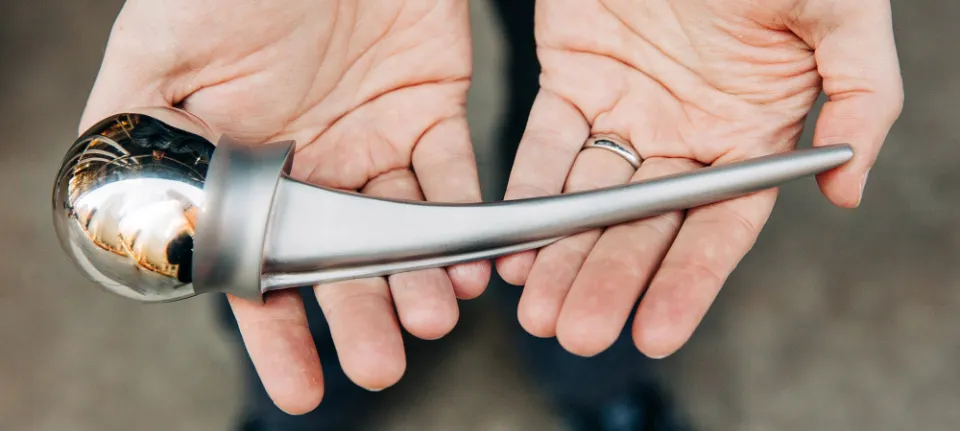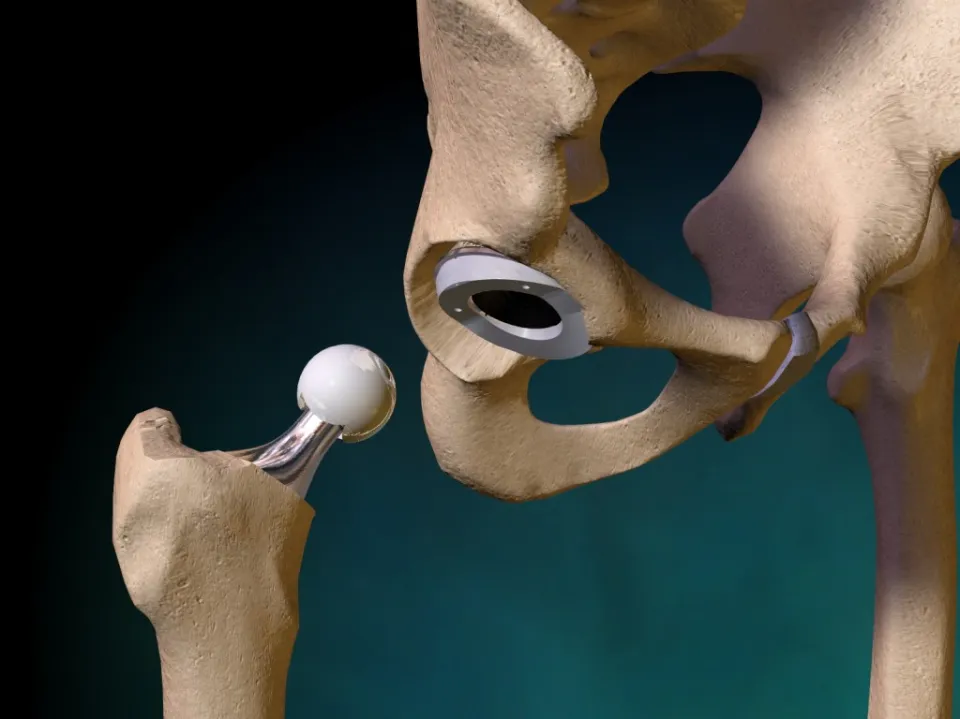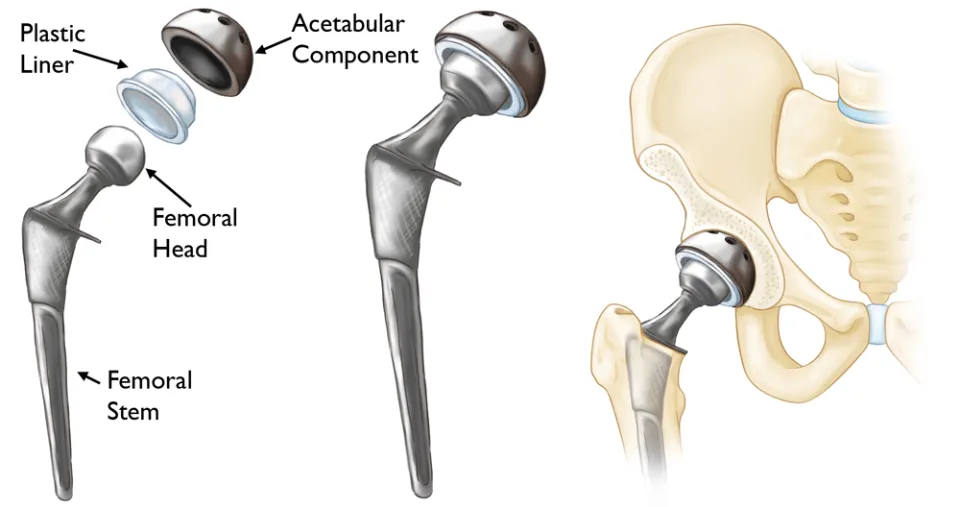You might be curious about how much titanium weighs and whether you can support it on the ground after having surgery to replace your knee with one made of titanium.
According to HipReplacement.com, the weight of a total titanium hip replacement ranges between 1 and 2 pounds. Stem, head, shell, and liner are the components that make up a complete system replacement.
Read more about: A Complete Guidance of Knee & Hip & Shoulder Replacement (2023) – Elder VIP
What is a Knee Replacement?
During knee replacement surgery, damaged or worn-out knee joint components are replaced. The procedure can improve the knee’s functionality and reduce pain. Damaged bone and cartilage are replaced with plastic and metal components during the procedure.
A surgeon will evaluate the strength, stability, and range of motion of your knee to determine whether a knee replacement is the best option for you. The degree of damage is made clearer by X-rays.
Your age, weight, activity level, knee size and shape, as well as your general health, all influence the best artificial joints and surgical procedures for you.
Continue reading to find out more information.

Why Do You Gain Weight After Knee Replacement?
According to Dr. Ramakant Kumar, the Best Doctor for Knee Replacement Surgery in Patna – there are two possible explanations to account for the weight gain.
First, obese or overweight patients may lose a significant amount of weight before surgery at their doctor’s advice.
After the procedure, they can resume their old eating habits and gain the weight again.
The second possibility is that these patients have had chronic knee pain for years and have avoided activities and exercise because they made their pain worse.
It may be challenging for some people to picture a lifestyle that includes regular exercise, says Dr. Ramakant said.
What Makes Titanium Hips the Best?
The majority of hip replacement components are made of a mix of metal, ceramic, and plastic. These substances are rigid. Titanium, on the other hand, is malleable and can bend without breaking. Additionally, titanium encourages bone growth around the replacement, causing your bone to fuse with the implant. By rigidly fixing to your hip bone as a result, your titanium hip replacement will last longer.
The Cleveland Health Clinic estimates that with the most recent technology, the average hip replacement could last up to 20 years.
The titanium hip replacement at the Kennedy Center has a track record of lasting significantly longer than 10-15 years. Our titanium hip replacements have lasted 28 years on average, 98% of which are still strong and functional, enabling our patients to live their best lives for many more years to come. These outcomes cover a wide range of patients, such as younger or older patients, overweight or physically active patients, as well as patients of all ages.
How Much Do Titanium Hip Replacements Weigh?
HipReplacement.com estimates that a complete titanium hip replacement weighs between 1 and 2 pounds on average. The stem, head, shell, and liner are among the components that need to be replaced for the entire system.
The prosthesis will weigh more than the bone that was removed did. Your knee and body size will affect the weight.
First will be the removal of soft tissue, bone, and bone reamings. The total weight of your knee’s prosthesis, bone cement, patellar component, and polyethylene liner is the next factor to consider (read about my hospital stay following knee replacement).
For men, the average new knee weighed 509 grams (1.12 pounds), while for women, it weighed 345.5 grams (0.76 pounds).
For men, the average weight of the bone and soft tissue removed was 167.5 grams (or 0.36 pounds), whereas for women, it was 130 grams (or 0.28 pounds).
The slight weight difference is typically undetectable.
Femoral head and femur are parts of the hip joint that slide into the pelvic socket. In the acetabulum, the head of the femur rotates. According to HipReplacement.com, an artificial hip connects the leg to the hip and allows for movement by fitting the femoral head inside an artificial acetabular shell. The femoral stem is inserted into the femur in an artificial hip.
According to Joint Preservation Institute, cobalt-chrome alloy and titanium are the two most frequently used materials for hip implants. Depending on one’s lifestyle, level of activity, weight, and other factors, hip implants may eventually wear out.

Does a Titanium Knee Feel Heavier Than a Normal Knee?
Due to the weight of your new metal knee, you may believe that when you weigh yourself after TKR, you can lose a few pounds. Unfortunately, this is untrue.
Your weight won’t significantly change as a result of the implant.
According to a study I read, the patient’s weight after surgery was unaffected by pre-operative weight or post-operative weight one year after surgery.
Of course, you could put on weight if you don’t take your rehabilitation seriously or if something goes wrong during the procedure.
I’ve written about the advantages of a 6-week (or longer) pre-surgical exercise program before, and how it can enhance pre-operative function and muscle strength.
Summary
You won’t feel a “heavy” knee and the new knee will not make you weigh more than you did before surgery. An insignificant increase in body weight results from what leaves and enters your knee joint. You should have many years of trouble-free knee function thanks to titanium, which is particularly good for knee replacements.



